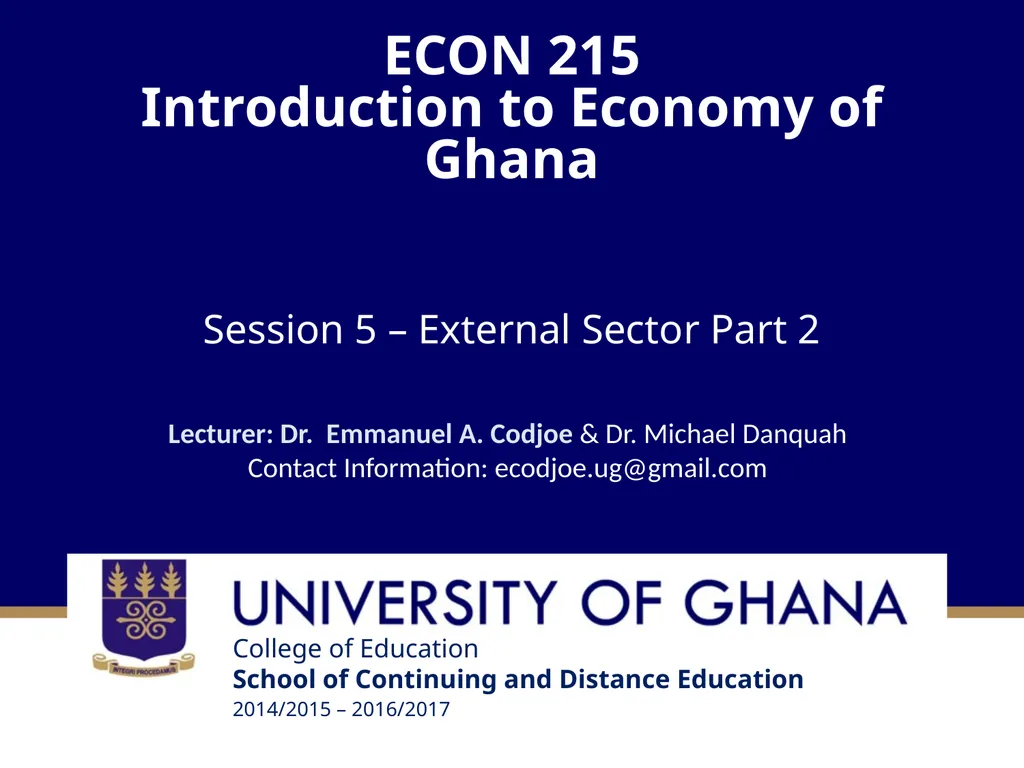
Author : alida-meadow | Published Date : 2025-06-23
Description: ECON 215 Introduction to Economy of Ghana Session 5 External Sector Part 2 Lecturer: Dr. Emmanuel A. Codjoe Dr. Michael Danquah Contact Information: ecodjoe.uggmail.com Session Overview Session Overview: This session considers GhanasDownload Presentation The PPT/PDF document "" is the property of its rightful owner. Permission is granted to download and print the materials on this website for personal, non-commercial use only, and to display it on your personal computer provided you do not modify the materials and that you retain all copyright notices contained in the materials. By downloading content from our website, you accept the terms of this agreement.
Here is the link to download the presentation.
"ECON 215 Introduction to Economy of Ghana Session"The content belongs to its owner. You may download and print it for personal use, without modification, and keep all copyright notices. By downloading, you agree to these terms.













